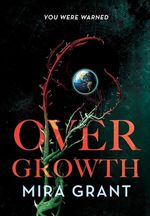Enafore
(Previously Pinafore and Semaphore)
★★★★☆
Before I discovered Elk and Phanpy, I used Pinafore as an alternate app for my Mastodon account, and later as a front-end when I was first testing GoToSocial. Like those, it’s a single-page web app (SPA) that runs entirely in your browser, talking to your server directly.
It’s fast and reliable, with a focus on privacy and accessibility, and an even more minimalist look than Phanpy. Lists are still kind of second-class UI, but you can pin one to your main toolbar replacing the Local timeline, which can be convenient.
Disco’ed
I kept using it off and on after the author discontinued it due to burnout, mainly because it doesn’t have Elk’s issues with Markdown on GoToSocial.
Semaphore picked up the project where the original author left off, but seems to have been abandoned somewhere along the line.
Current
I recently discovered Enafore, another fork that’s still being updated. Apparently it has “better support for Akkoma, glitch-soc, and Iceshrimp,” though I haven’t found a comparison yet. The main thing I’ve noticed is that it lets you choose a format type (plain, HTML, Markdown, BBCode etc.) per-post when writing on GoToSocial or Akkoma.
There are still a couple of baseline features I miss from other Mastodon web apps:
- Enafore only shows ALT text on hover (making it inaccessible on touch screens).
- Posts in the same thread show up separately in the main timeline.
- Filtered posts are straight-out removed, not just collapsed. Including my own.
- You can only log into one account per instance.
But simple is good for self-hosting, and the risk of hosting a few extra static HTML, CSS and JavaScript files is, like the cost Lawson mentions, basically zero. Of the three Mastodon-compatible web apps I’ve used, this the the only one I’ve seriously considered hosting myself as a dedicated front-end for my GTS site. That’ll be interesting, if I ever get around to it!
